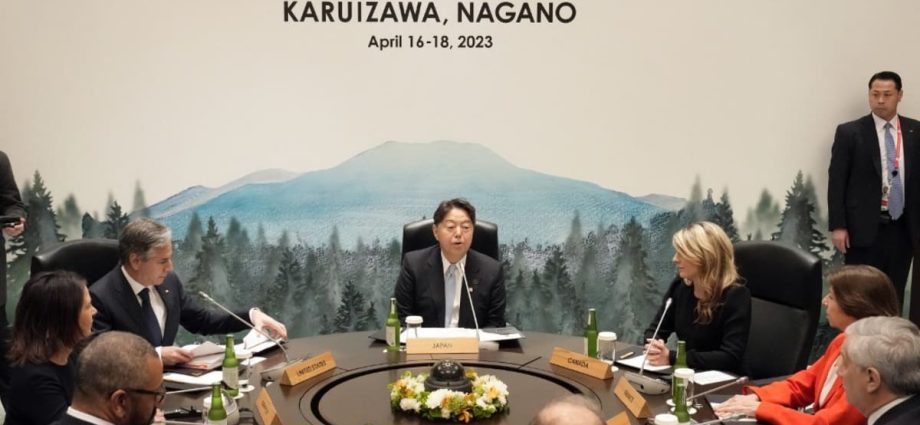
STRIKING A BALANCE
The ministers are expected to agree strong language in a final statement on Tuesday, warning against militarisation of the South China Sea, and repeating opposition to any “change of the status quo by force” on Taiwan.
They are also likely to warn about the weaponisation of trade, and the need for diversification of supply chains on sensitive material like semiconductors – seen as another message directed at Beijing.
“There is a lot of unity in the room and basically you’ll see that reflected,” a senior State Department official said.
The ministers will send the message that “we want to work with China but we are certainly going to stand up against any coercion” or market manipulation, the official added.
Still, for all the outward expressions of unity, Macron’s comments reflect the fact that there are real differences among the allies, said Jacques deLisle, director of the Asia programme at the Foreign Policy Research Institute in Philadelphia.
“Europe’s assessments of China and views of Taiwan have moved toward positions that the US has favoured. But this has not brought consensus,” he said.
“Washington’s views of China have become still more negative and, relatedly, signals of support for Taiwan have grown much stronger, maintaining a gap between European and American positions.”
And in a sign that the daylight between the allies remains a concern, German Foreign Minister Annalena Baerbock warned Europeans “must not withdraw into our shells.”
“We must not limit ourselves to defending the European peace,” she told a press conference in Karuizawa.
Despite the focus on China, Ukraine has remained a priority at talks with the diplomats committing to “intensifying” sanctions against Russia, without outlining any specific new measures.
They also agreed stepped-up efforts to “prevent and respond to evasion of sanctions as well as third party weapon supply to Russia,” likely to be seen as a further warning to China, among others, on cooperating with Moscow on its war in Ukraine.

